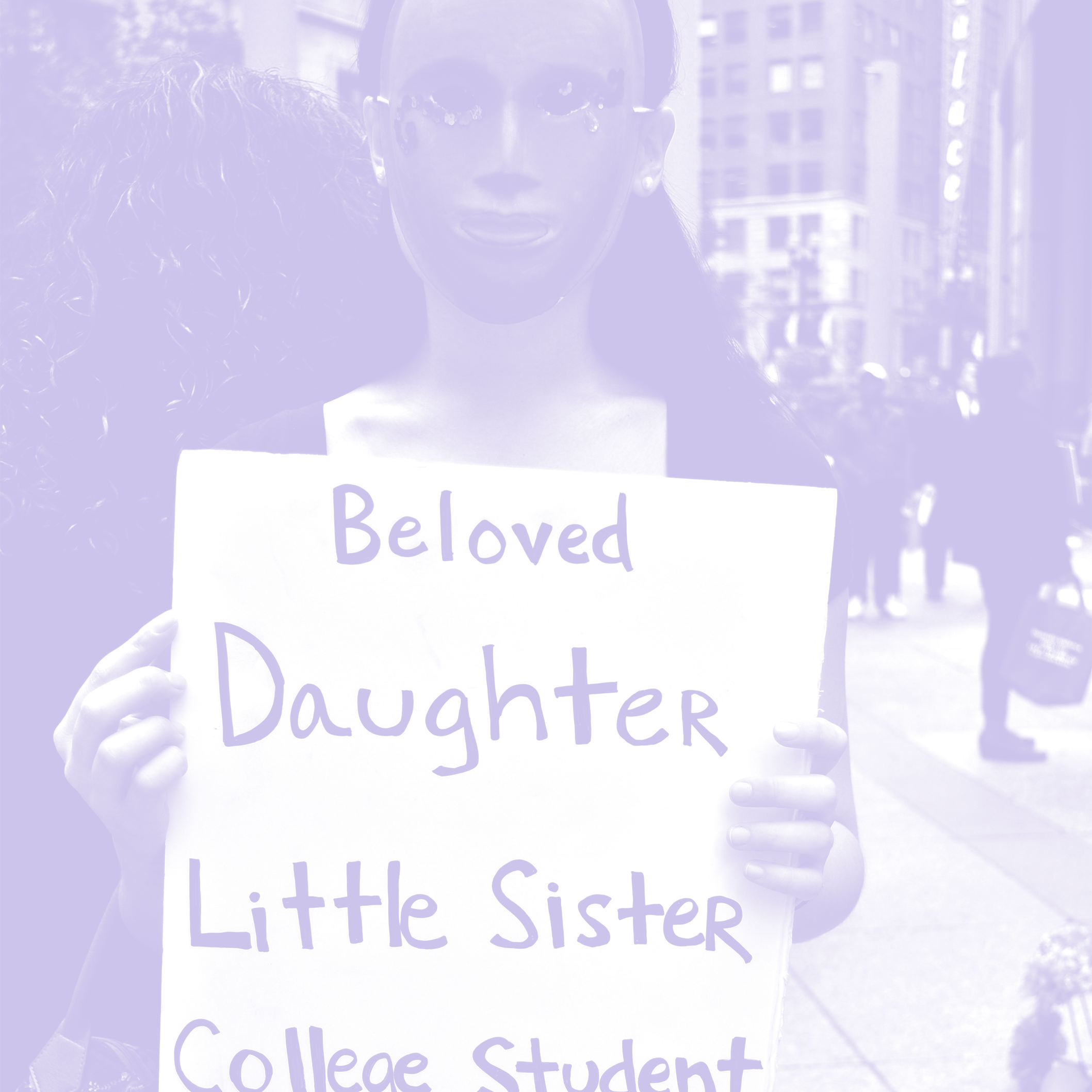COMMUNITY ENGAGEMENT
KAN-WIN engages in advocacy work to uplift marginalized voices, educate our communities, and equip them with the tools to join us in the fight against gender-based violence.
EDUCATION + TRAINING
•
EDUCATION + TRAINING •
EDUCATION + TRAINING
KAN-WIN conducts workshops and presentations on various issues to community members, social workers, students, and more! Upon request, we can visit your group or organization to educate.
TOPICS COVERED INCLUDE, BUT ARE NOT LIMITED TO:
Domestic violence, sexual assault, dating violence, and stalking
Sexual harassment & bystander intervention (Illinois mandated)
Training for cosmetologists
Healthy relationships
Unique challenges for immigrants
Cultural competency
FOR MORE INFORMATION:
Contact our Education & Outreach Coordinator, at mtingpalpong@kanwin.org.
PEER ADVOCATE LEADERSHIP
•
PEER ADVOCATE LEADERSHIP •
PEER ADVOCATE LEADERSHIP
The Peer Advocate Leadership (PAL) program has been one of KAN-WIN’s primary vehicles for expanding grassroots leadership in the gender-based violence movement.
Through community events and workshops, PAL participants gain tools to advocate for survivors and engage their peers in gender-based violence issues. Through this process, PAL participants not only deepen their knowledge of gender-based violence issues, but also help to grow the movements by communicating this information in a culturally and linguistically sensitive manner to cultivate allies.
FOR MORE INFORMATION:
Contact our Multilingual Advocacy Program Manager, at hychung@kanwin.org.
YOUTH PROGRAMS
•
YOUTH PROGRAMS •
YOUTH PROGRAMS
ELEVATE
Emerging Leaders Ending Violence Against Teens Everywhere (ELEVATE) is KAN-WIN's youth leadership group. ELEVATE exists for young Asian American girls, non-binary people, and allies ages 13-19 to provide a space for educational opportunities and dialogue about issues, including gender-based violence and gender justice, that impact us and society at large.
By establishing a safe space, ELEVATE allows members to foster meaningful relationships with peers and equips young people with the knowledge and vocabulary to create change in their communities. ELEVATE meetings generally revolve around an interactive and educational workshop and are held twice a month on Sundays from 4-6PM.
FOR MORE INFORMATION:
Contact our Youth & Young Adult Organizer at jyoo@kanwin.org.
Youth Peer Advocate Leadership Program
The Youth Peer Advocate Leadership (YPAL) Program is a seven-session program aimed to educate and build leadership skills for youth and young adults, foster conversations with other young people interested in combating gender-based violence, and explore ways to contribute to the anti-violence movement.
YPAL participants will receive in-depth training in gender-based violence, root causes of violence, intersectionality, supporting survivors, and community organizing while cultivating allies through peer to peer education. The YPAL Program is offered during the summer session in late June to late July. Participants are eligible to receive service hours or a stipend upon completion of the training.
-
The Youth Peer Advocate Leadership Internship offers an optional internship where participants work together to develop and implement a project that addresses issues of gender-based violence within the community. The YPAL Internship takes place after the summer session of YPAL training from late July to early August and is only eligible for those who have completed YPAL training. Participants are eligible to receive service hours or a stipend upon completion of the internship.
FOR MORE INFORMATION:
Contact our Youth & Young Adult Organizer at jyoo@kanwin.org.
ADVOCACY
•
ADVOCACY •
ADVOCACY
By equipping our communities with information and resources, we are all empowered to stand together against gender-based violence.
KAN-WIN engages in advocacy work in a number of different ways: peer education, digital communications, training and workshops, and uplifting the voices of those who are marginalized by gender, ethnicity, race, language ability, and immigration status, among others.
KAN-WIN ENGAGES IN ADVOCACY EFFORTS, INCLUDING:
-
KAN-WIN engages in “comfort women” advocacy through political education, art, and coalition building. We know that to truly create conditions for a world free of oppression, we must shift from our current culture of silencing and distrust of survivors. At the same time, multiple systems of power uphold this culture to be the dominant response to survivorship and violence. Examples of these interlocking powers include cis-heterosexism, ageism, ethno-nationalism, colonialism, and militarism. Notably, not one of our communities is free toLearn more ignore or overcome these forces alone. When “comfort women” survivors fight for their justice, they are challenging each one of these systems. Their fight then is our fight.
-
KAN-WIN is a member of the Illinois Language Justice Coalition, a coalition made up of community-based organizations that serve, organize, and work with community members whose primary/first language is not English. The goal of the Coalition is to grow a diverse base of directly impacted immigrant and refugee leaders who develop grassroots model policy to improve language access in Chicago and Illinois.
-
Asian Americans have long contributed to anti-gender-based violence activism. We created a timeline of such efforts with the intent of filling the gap in the archive of the anti-violence movement(s) which frequently leaves out the stories and narratives of communities of color, but we do not claim that this is a fully comprehensive overview of the role that Asian Americans have played within the movements to end domestic and sexual violence. We hope that this can serve as an important learning tool and a starting point for uncovering more of the stories and voices of Asian Americans in history.
KAN-WIN acknowledges the legacy and lasting impact of Black, Latinx, and Indigenous activists, many of whom are women, trans, and/or non-binary, throughout history who have created the frameworks and contexts for doing transformative gender-based violence prevention and advocacy work. Without their contributions to the expansive history of the anti-violence movement(s), it would not be possible for many of the Asian American activists, politicians, and community organizations listed in this timeline to accomplish what they were able to. We thank the activists who worked tirelessly before us to shed light on the unique barriers faced by survivors of color and their ingenuity in crafting solutions that address the specific challenges faced by immigrants and people of color, and who fought to provide space for more diverse voices to be heard within the movements to end domestic and sexual violence.
INFORMATION + RESEARCH DEVELOPMENT
•
INFORMATION + RESEARCH DEVELOPMENT •
INFORMATION + RESEARCH DEVELOPMENT
KAN-WIN strives to develop up-to-date, multilingual and culturally competent resource materials on domestic violence, sexual assault, and immigration.
-
This Survey Report describes the major findings from KAN-WIN’S Community Needs Assessment Survey. As we at KAN-WIN celebrated our 20th anniversary in 2010, we vowed to increase our knowledge and understanding of our community’s needs and explore effective means to end gender-based violence. To that end, we launched a major grassroots effort to administer the Community Needs Assessment Survey project. The survey asked over 359 Asian immigrant community members about their knowledge and understanding about domestic violence.
-
This survey explores the prevalence of sexual violence in the Asian American/immigrant communities and barriers for survivors in accessing services.
-
Between 2022 and 2024, KAN-WIN collaborated with the University of Georgia to conduct three studies exploring the Chicagoland Asian American community’s knowledge and attitudes to help individuals in domestic violence situations. Each year, approximately 200 individuals were surveyed in community settings like grocery stores, language schools, churches, and hair salons frequented by Asians. Around half of the participants identified as Korean, with others identifying as Chinese, Bangladeshi, Filipino, Indian, Japanese, Mongolian, Taiwanese, and Vietnamese. The following surveydata results are from the analysis of the initial 200 surveys. Analysis of the remaining 400 surveys is ongoing, and we look forward to sharing additional insights with our community soon.
Data on Stigmatization Toward Domestic Violence
Data on Attitudes Toward Domestic Violence
Data of Knowledge About Domestic Violence
MULTILINGUAL ADVOCACY PROGRAM
•
MULTILINGUAL ADVOCACY PROGRAM •
MULTILINGUAL ADVOCACY PROGRAM
The Multilingual Advocacy Program (MAP) at KAN-WIN works to increase access to services for limited English proficient survivors of domestic violence, sexual assault, stalking, and human trafficking with a focus on East and Southeast Asian communities.
MULTILINGUAL COMMUNITY ADVOCATES ACT AS A COMMUNITY LIAISON TO:
Promote awareness of gender-based violence issues & KAN-WIN’s services to the community;
Engage the community in a culturally & linguistically-appropriate manner to build connections and grassroots leadership; and
Provide direct support to survivors by collaborating with the Direct Services team. Now we have four divisions as follows, and will extend more languages of communities when the resources are ready.
Korean Community Advocacy
Chinese Community Advocacy
Mongolian Community Advocacy
Faith-Based Community Advocacy
FAITH-BASED ADVOCACY
An important aspect of our work revolves around faith-based community advocacy. Within Asian American communities, religious institutions hold great importance in the lives of many immigrants. These institutions not only provide spaces for spiritual growth but also serve as community hubs where friendship, resources and support can be found. Consequently, it is crucial for us to collaborate with these institutions to achieve the following objectives:
Foster allyship with faith leaders, lay leaders, and congregants to actively contribute to the movement to end gender-based violence.
Empower faith community members with the necessary knowledge and tools to support survivors and challenge victim-blaming attitudes and other harmful norms that perpetuate violence.
Engage faith community members and cultivate their leadership abilities to make substantial, long-term contributions to the prevention of gender-based violence, thereby facilitating lasting change.
By partnering with faith-based organizations, KAN-WIN aims to leverage their influence and reach within the community to promote awareness, education, and action against gender-based violence. Through collaboration, we can work towards a vision of healthy and safe communities free of violence and oppression.






